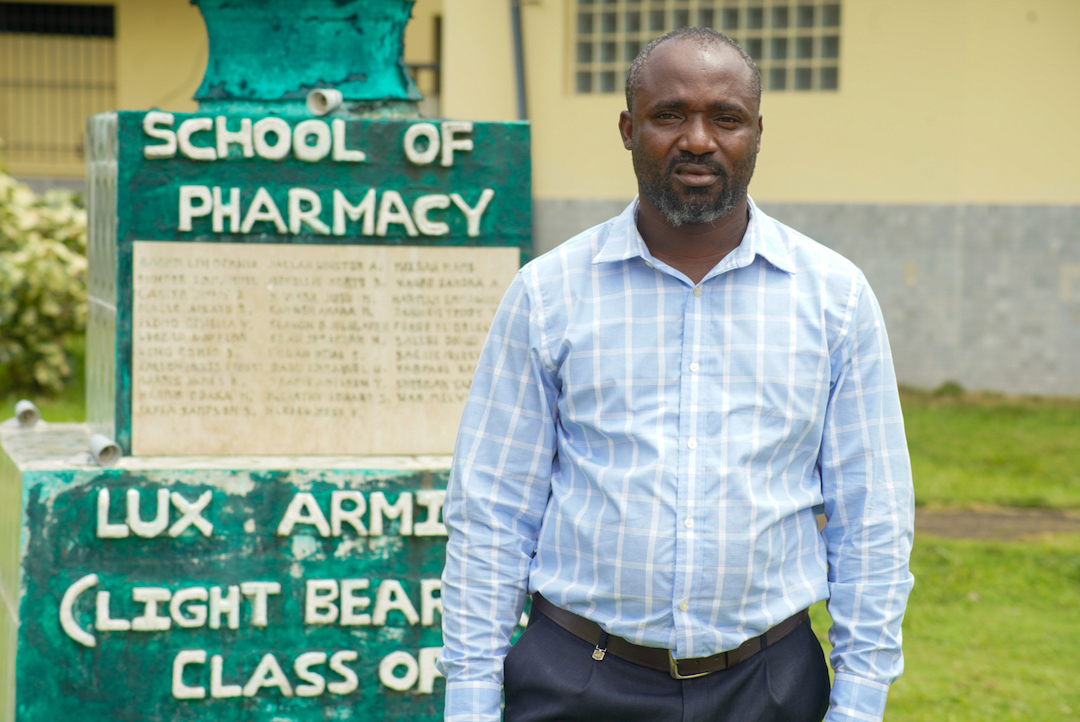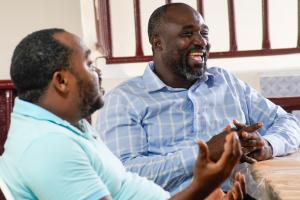Halting the spread of Ebola through sexual transmission
Monrovia ‒ Ebola survivor Randall Varney lost nine family members, including his parents and seven siblings, to the virus in just three months in 2014, before himself contracting the disease. After learning that he could still sexually transmit the virus up to 90 days after recovery, he resolved to do everything possible to ensure the safety of his wife.
Varney was among more than 11 000 patients infected with the virus during the more than two-year-long outbreak in Liberia. He was also one of 857 survivors enrolled in the subsequent Men’s Health Screening Programme, led by Liberia’s Health Ministry, in collaboration with World Health Organization (WHO) and the United States Centers for Disease Control and Prevention.
“I wanted to be associated with the programme because I wanted to know what was happening to me. I didn’t want to put my wife and family at risk.” Randall Varney, Ebola survivor
The programme, launched in July 2015 after the third and fourth waves of the Ebola outbreak in Liberia were attributed to sexual transmission, aimed to provide semen testing services and safe sex counselling to male Ebola survivors aged 15 years and older.
Initiated in Liberia, Guinea and Sierra Leone, Liberia became the first country to declare all enrolled men safe in July 2022, following two successive negative tests each. In March 2023, the Ministry of Health officially ended the programme with a closing ceremony attended by Minister of Health Dr Wilhemina Jallah, National Public Health Institute staff, partners, as well as Varney and many of the other enrolled men.
“Findings from the programme, and the lessons learned, will not only benefit Liberia, but the world,” says Dr Jallah.
“Findings from the programme, and the lessons learned, will not only benefit Liberia, but the world.” Dr Wilhelmina Jallah, Minister of Health, Liberia
Dr Julius Monday, the health emergencies team lead at WHO’s Liberia country office, explains that given limited pre-existing data, the potential for the virus to persist in survivors was identified as an important research topic early in the epidemic.
“This need became even more clear when a Liberian woman tested positive for Ebola infection, and epidemiological investigation found that her only exposure was unprotected vaginal intercourse with a male survivor, whose semen tested positive for Ebola RNA 200 days after he first became symptomatic,” he adds.

Despite the deep associated stigma, Varney was eager to enrol. “I wanted to be associated with the programme because I wanted to know what was happening to me. I didn’t want to put my wife and family at risk,” he recalls.
Over the six years of the programme, survivors were tested every two weeks. WHO also developed the Ebola Virus Persistence Risk Reduction Behavioural Counselling Protocol to identify barriers to risk reduction, and facilitated a personalized Ebola risk-reduction plan, particularly around condom use and abstinence.
In addition, WHO provided the protocols, guidelines and Standard Operating Procedures for the programme, along with supplies for sample collections, packaging and consumables.
Communications Officer
Phone : (266) 590 17166
Email: nangwalel [at] who.int (nangwalel[at]who[dot]int)
Media Relations Officer
WHO Regional Office for Africa
Email: dalalm [at] who.int (dalalm[at]who[dot]int)
Tel: +254 703 245 761 (WhatsApp)
